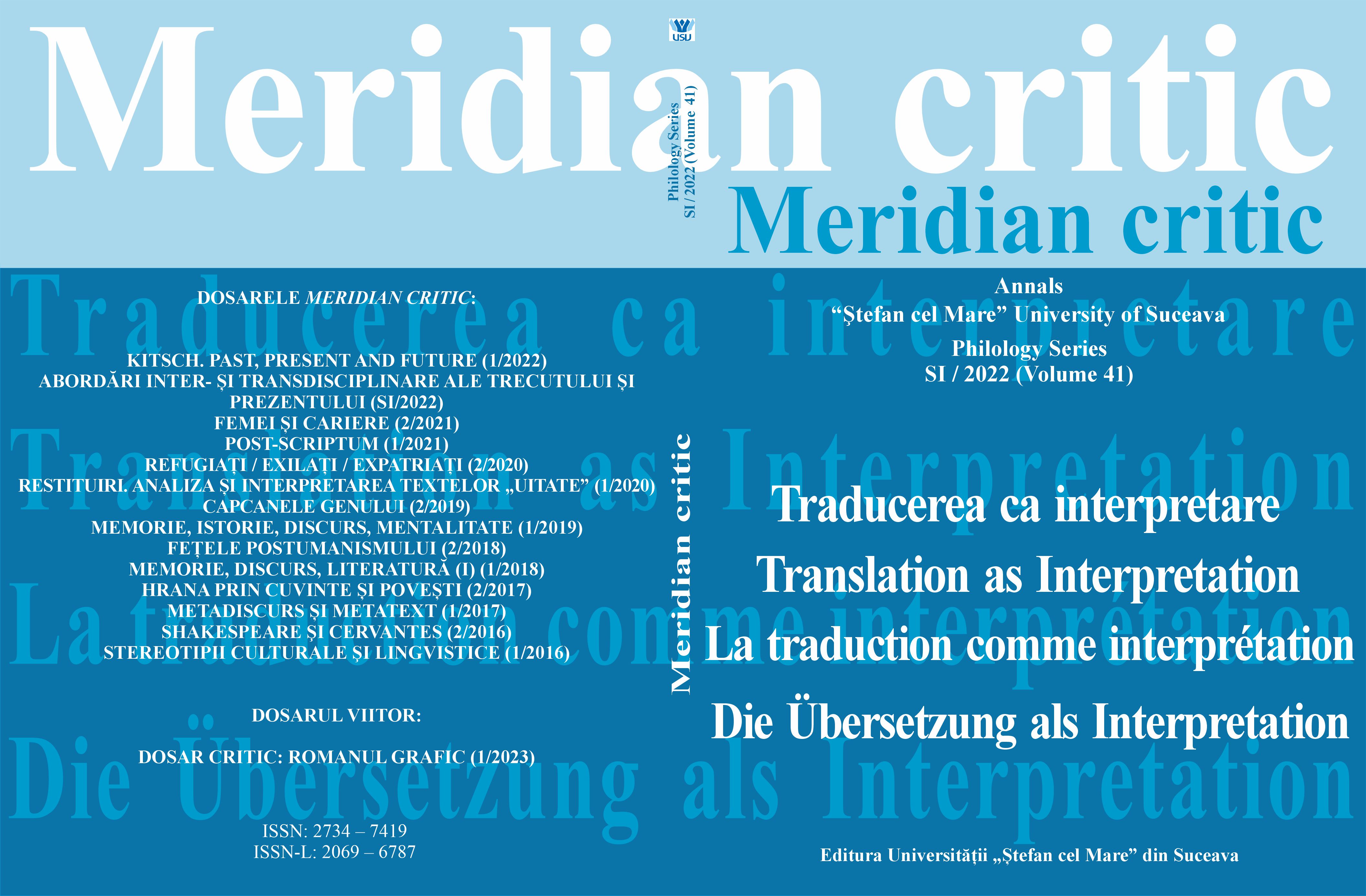Conceptul de „rău” în cultura română și
în cea poloneză. Studiu lingvistic asupra construirii,
receptării și traducerii ideii de „rău” în versiunile
ortodoxe ale Noului Testament în limbile română și
polonă. Comportamente și atitudini traductologice
The Concept of “Evil” in Romanian and Polish Culture. A Linguistic Study of the Construction, Reception and Translation of the Idea of “Evil” in the Romanian and Polish Versions of the New Testament. Translatological Behaviours and Attitudes
Author(s): Irina-Marinela DeftuSubject(s): Language studies, Language and Literature Studies
Published by: UNIVERSITATEA »ȘTEFAN CEL MARE« SUCEAVA
Keywords: comparative analysis; devil; onomasiology; biblical text; translation;
Summary/Abstract: In this paper I intend to analyze from a comparative perspective the various forms of expression that the Romanian and Polish languages have for one and the same concept – the concept of evil –, trying to explain the etymologies and to motivate the creation of some forms. Thus, in my research from an onomasiological perspective, I will start from the designation, from the content of the thought that is intended to be expressed and that becomes expression in a given language in order to see the continuous changes in the way we express the concept of evil, as well as the motivation behind it.Given that I will attempt to analyse the concept of evil within two synchronic languages that are not similar, it should be noted that in my approach to defining the conceptual system of evil I have questioned whether there are certain conceptual universals. Both the Romanian and the Polish linguistic communities create their own conceptual system regarding the idea of evil, which they verbalize. Therefore, the concept of evil is not only not universal (the system of description), but it is also not inextricably linked to a language, but to a culture and an environment. The idea of evil is constructed through the various entities that give it form. The forms that give shape to the idea of evil differ according to the imaginary of the symbol-creating culture, the socio-cultural contexts of a language-creating community and the linguistic attitudes of a language community.The corpus analysed in my research is the Polish editions of the Orthodox version of the biblical text – Biblia Ekumeniczna to jest Pismo Święte Starego i Nowego Testamentu. Przekład Ekumeniczny z języków oryginalnych (2018) (Wydawnictwa Towarzystwa Biblijnego w Polsce, Warszawa) and Pismo Święte Nowego Testamentu. Ekumeniczny Przekład Przyjaciół (2016) (Wydawnictwa M w Polsce, Kraków) - and the Romanian edition of the Orthodox version of the biblical text – The Bible or The Holy Scripture (2008) (Publishing House of the Orthodox Biblical Mission Institute, Bucharest).My intention to investigate the construction, reception and translation of the idea of evil in the Orthodox versions of the New Testament in Romanian and Polish from the perspective of cultural and theological-dogmatic conditioning has a teleological character: the biblical text through the prism of the confessionally delimited biblical tradition, the ecclesiastical tradition in the strict sense – the Orthodox editions of the two cultures – and the Orthodox tradition in the strict sense.Orthodox versions are characterized by a specific doctrine or teaching of faith, and Orthodox editions in Polish are recent and the lexicon of Orthodox versions of the Bible in Polish has not been systematically and sufficiently researched until now. As Poland has Catholicism as its main religion and Orthodoxy is a minority religion, the need tolexicalize new concepts in the translation of religious texts becomes imperative, forcing translators to respect the confessional requirements of the organization of the sacred message, perceived and analyzed in the source language, and to offer some new forms of lexicalization in the target language. Translation is therefore a matter of expressive and semantic choice, and the achievement of an ideologically and formally correct translation requires an exacerbated attention to the text. Thus, in the research I will undertake, I will show that there is a close connection between the preference for a particular equivalent and the confessionality of the translators, the biblical message being rendered through the use of certain translation techniques. My research reveals that a close relationship is established between the preference for a particular equivalent and the cultural and theological background of the translators, and that the translation choices reflect the theological training of the translators, but also certain denominational preferences specific to the respective mentality and space and tradition, as well as translation attitudes and behaviours.
Journal: Meridian critic
- Issue Year: XLI/2022
- Issue No: SI
- Page Range: 197-208
- Page Count: 12
- Language: Romanian

